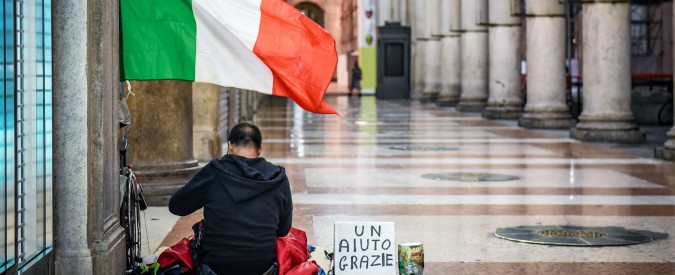Nuova Delhi, 19 apr. - Narendra Modi si avvia secondo i pronostici della vigilia a conquistare un terzo mandato quinquennale da premier alle elezioni legislative che si terranno a partire da domani in India. Sotto la sua guida, il Paese potrebbe aspirare a diventare una superpotenza economica, presentarsi come una vera alternativa alla Cina per gli investitori, in un momento difficile per le relazioni tra Pechino e l'Occidente. L'India ha buoni rapporti con la maggior parte delle principali economie e sta corteggiando aggressivamente le grandi aziende per far aprire fabbriche nel Paese.
Si tratta di una delle economie in più rapida crescita del mondo. Il Pil pro capite è salito del 55% tra il 2014 - anno in cui Modi è diventato premier - e il 2023. Il Paese è passato dal nono al quinto posto tra le economie mondiali nello stesso periodo di tempo. L'espansione sostenuta del paese spingerà l'India più in alto nei ranghi delle maggiori economie del mondo, passando secondo alcuni osservatori ad occupare il terzo posto dietro agli Stati Uniti e alla Cina entro il 2027.
Tuttavia le autorità indiane potrebbero fare molto di più per aumentare il prodotto interno lordo pro capite, indice del tenore di vita in base al quale il Paese si è classificato al 147esimo posto nel 2022, secondo la Banca Mondiale. Guido Cozzi, professore di macroeconomia all'Università di San Gallo in Svizzera, dice alla Cnn che con la crescita economica ci saranno "effetti a cascata sul Pil pro capite". Ma questo non garantisce "una riduzione delle disuguaglianze di reddito e potrebbero essere necessarie politiche che promuovano una crescita inclusiva". Proprio come la Cina più di tre decenni fa, l'India sta poi iniziando una massiccia trasformazione delle sue infrastrutture, con investimenti di miliardi per finanziare la costruzione di strade, porti, aeroporti e ferrovie. Nel frattempo, gli investitori privati stanno costruendo il più grande impianto di energia verde del mondo.
Secondo un rapporto del mese scorso dell'Organizzazione Internazionale del Lavoro, gli indiani istruiti di età compresa tra i 15 e i 29 anni hanno maggiori probabilità di essere disoccupati rispetto a quelli senza alcuna istruzione". I tassi di disoccupazione giovanile in India sono ora superiori ai livelli globali. Il tasso di disoccupazione per i giovani indiani con una laurea era superiore al 29%, quasi nove volte superiore a quello di coloro che non sanno leggere o scrivere. "L'economia indiana non è stata in grado di creare abbastanza posti di lavoro remunerativi nei settori non agricoli per i nuovi giovani iscritti alla forza lavoro istruita, il che si riflette nell'alto e crescente tasso di disoccupazione", ha aggiunto.
I risultati sono immediatamente visibili, come confermano i numerosi cantieri aperti in tutto il Paese. L'India ha aggiunto quasi 55mila chilometri alla rete autostradale nazionale, con un aumento del 60% della sua lunghezza complessiva, tra il 2014 e il 2023. Negli ultimi anni, il paese ha anche creato una serie di piattaforme tecnologiche, infrastrutture pubbliche digitali, che hanno trasformato la vita e le imprese. Tra queste il programma di identificazione Aadhaar, che dal 2009 raccoglie i dati demografici e biometrici dei cittadini, considerato il più grande database biometrico del mondo e che ha anche aiutato il governo a risparmiare milioni riducendo la corruzione nelle iniziative di welfare. Un'altra piattaforma, l'Unified Payments Interface (Upi), consente agli utenti di effettuare pagamenti scansionando un codice Qr. È stato abbracciato dagli indiani di tutti i ceti sociali. Nel settembre 2023, citando un rapporto della Banca Mondiale, Modi ha affermato che grazie alla sua infrastruttura pubblica digitale "l'India ha raggiunto obiettivi di inclusione finanziaria in soli sei anni, che altrimenti avrebbero richiesto almeno 47 lunghi anni".
L'entusiasmo per il potenziale di crescita dell'India si riflette nel suo mercato azionario, che ha raggiunto livelli record. Il valore delle società quotate nelle borse indiane ha superato i 4 trilioni di dollari alla fine dello scorso anno. L'India ha due principali borse: la National Stock Exchange of India (Nse) e la Bse, la più antica borsa dell'Asia precedentemente nota come Bombay Stock Exchange. Nuova Delhi sta infine cavalcando la ricerca di diversificazione nella catena di approvvigionamento che spinge le aziende internazionali a svolgere le loro operazioni lontano dalla Cina, dove hanno affrontato ostacoli durante la pandemia e sono minacciate dalle crescenti tensioni tra Pechino e Washington. La terza economia più grande dell'Asia ha lanciato un programma di incentivi del valore di 26 miliardi di dollari per attirare le aziende a produrre in 14 settori, che vanno dall'elettronica e dalle automobili ai prodotti farmaceutici e ai dispositivi medici.
Di conseguenza, alcune delle più grandi aziende del mondo, tra cui il fornitore di Apple (AAPL) Foxconn, stanno espandendo in modo significativo le loro operazioni in India. Il miliardario Elon Musk ha dichiarato la scorsa settimana su X che "non vede l'ora" di incontrare Modi in India, senza fornire una data. Il capo di Tesla (TSLA) dovrebbe annunciare presto un importante investimento in India, con la casa automobilistica che starebbe perlustrando il paese alla ricerca di un luogo adatto per la sua prima fabbrica asiatica al di fuori della Cina. Tuttavia, l'economia indiana, proprio come la sua democrazia, è tutt'altro che perfetta. Se rieletto, Modi dovrà affrontare l'enorme sfida di creare centinaia di milioni di posti di lavoro per una popolazione che rimane in gran parte povera. Con un'età media di 29 anni, l'India ha una delle popolazioni più giovani al mondo, ma non è ancora in grado di raccogliere i potenziali benefici economici dalla sua numerosa popolazione giovane.
Anche l'intelligenza artificiale debutta fra gli strumenti, utilizzati nella campagna per le elezioni indiane, che si aprono oggi. Un messaggio personalizzato del premier Narendra Modi, indirizzato a singoli elettori, chiamati per nome, ma anche voci clonate sull'originale dei politici in telefonate che arrivano direttamente ai cittadini, gestite da chatbot come ChatGpt. Sono alcuni degli strumenti con cui l’intelligenza artificiale fa il debutto fra gli strumenti utilizzati nella campagna per le elezioni indiane che si aprono domani.
Il New York Times riporta le immagini di video 'personalizzati' di Modi, generati dall’intelligenza artificiale e condivisi su WhatsApp, in cui il primo ministro sembra rivolgersi direttamente ai singoli elettori. Il quotidiano ha quindi verificato la possibilità di replicare questo messaggio, scoprendo che un singolo laboratorio può creare - utilizzando un "algoritmo di clonazione" che studia l'audio, la cadenza e le intonazioni della voce del politico prescelto - fino a 10.000 video al giorno. Peraltro, si spiega, l'IA generativa può anche rimuovere le barriere linguistiche, il che è particolarmente utile in un paese linguisticamente diversificato.
L'India resta un grande Paese, ma non è detto che resterà una grande democrazia. Nel giorno della prima tornata elettorale nel gigante asiatico - dove da domani al primo giugno poco meno di un miliardo di elettori andrà a votare in 28 Stati federali e otto territori - l'ex ambasciatore italiano a Nuova Delhi, Antonio Armellini, parla con l'Adnkronos dell'India di Narendra Modi, che si avvia al suo terzo mandato, dopo dieci anni già al governo.
Con il leader del Bjp "l'India è molto cambiata, è cresciuta economicamente, è migliorata al suo interno, il programma di investimenti sulle infrastrutture ha portato risultati e il sistema finanziario è stato ammodernato", riconosce Armellini. Che tra i 'meriti' cita "la presa sull'elettorato, che si è ampliato e non è più solo quello tradizionale del Bjp", il partito dei commercianti e degli imprenditori.
Parallelamente, osserva l'ex ambasciatore, "la stretta autoritaria del governo Modi è diventata sempre più opprimente, figlia di un controllo e di un meccanismo del consenso molto sofisticati", mentre l'opposizione divisa e frammentata "è in difficoltà nel trasmettere un qualche tipo di messaggio che possa essere recepito dagli elettori".
L'India cresce "ma crescono anche le diseguaglianze", sottolinea ancora Armellini, mentre si avvia a diventare "una democrazia autoritaria sempre più lontana dal modello che ne aveva fatto un unicum nel continente asiatico, una grande democrazia liberale, figlia del pensiero politico del 19esimo secolo, che aveva avuto anche Giuseppe Mazzini tra gli ispiratori della lotta per l'indipendenza". "L'India laica, tollerante, multietnica, rispettosa dello stato di diritto non è l'India di Modi, fortemente identitaria - ragiona l'ex ambasciatore -. L'India è un grande Paese, ma che resti una grande democrazia è un punto interrogativo".
Quanto alla politica estera di Nuova Delhi, che "ha una percezione di sé come grande potenza sullo stesso piano di Stati Uniti e Cina, il punto da cui partire è che l'India non ha alleanze, ma relazioni, è partner di molti, ma nel proprio interesse". Che è quello di "grande potenza autonomia con due punti di riferimento imprescindibili: il contrasto con la Cina e il conflitto con il Pakistan", spiega Armellini. E chi, "come a tratti cercano di fare gli Stati Uniti, pensa di poterla legare in una vera e propria alleanza, rischia di restare fortemente deluso". L'ex ambasciatore si dice, infine, convinto che Nuova Delhi abbia "una maggiore capacità di attrazione per diventare il punto di riferimento del Sud globale", in particolare rispetto a Pechino, che agli altri Paesi "richiede di schierarsi", laddove l'India ha un approccio meno identitario.







